|
A hero was born on the night of Nov. 19 in Colorado Springs, Colorado.
Richard M. Fierro, a 15-year military veteran with tours in Afghanistan and Iraq, was inside a gay nightclub when he heard gunfire. Instead of heading for an exit, Fierro found the suspect, tackled him to the floor and took away a weapon.
The heroics were too late to save the lives of five people gunned down by the 22-year-old suspected shooter, who now faces murder as well as bias-motivated charges.
Commonly known as hate crimes, these laws are difficult to prosecute, in part because of their narrow legal definition, which often requires prosecutors to prove a suspect’s state of mind beyond a reasonable doubt.
Law professor Jeannine Bell explains the challenges – and why the need for heroes like Fierro still exists.
|
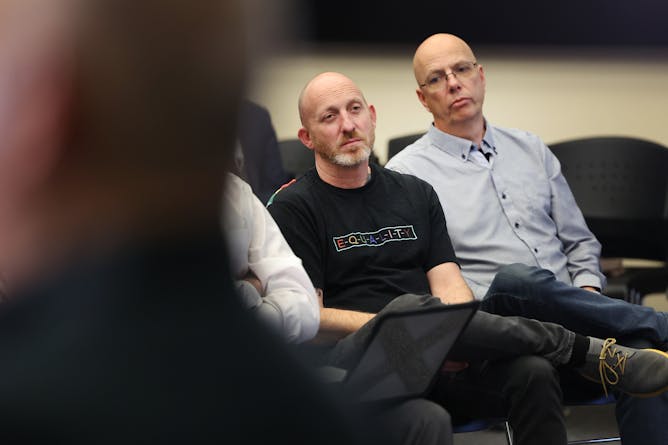
Club Q co-owners Nic Grzecka, left, and Matthew Haynes listen during a police news conference on Nov. 21, 2022, in Colorado Springs, Colo.
Scott Olson/Getty Images
Jeannine Bell, Loyola University Chicago
Bias-motivated attacks became a distinct crime in the 1980s. But police investigate only a fraction of the roughly 200,000 hate crimes reported each year – and even fewer ever make it to court.
|
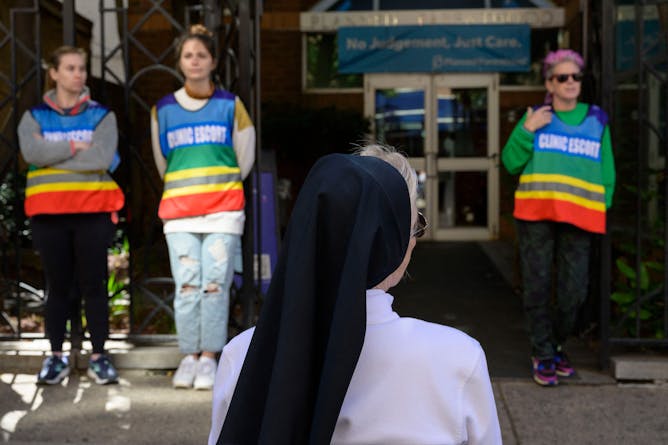
An anti-abortion activist prays in front of a Planned Parenthood center in Philadelphia in September 2022.
Angela Weiss/AFP via Getty Images
Rachel Rebouche, Temple University
Abortion referendums in such states as California and Kentucky provide a way to protect abortion rights at the state level – but voting limitations could undermine the power of the ballot box.
|

Fans watch the World Cup opening match between Qatar and Ecuador on Nov. 20, 2022, in Doha.
Clive Brunskili/Getty Images
David Mednicoff, UMass Amherst
Migrant workers’ rights are indeed an ongoing issue in Qatar – but the country has passed reforms to improve workers’ rights, and it isn’t the only issue to define Qatar.
|
|
|

Jillian Peterson, Hamline University ; James Densley, Metropolitan State University
At least six people have been killed in an attack at a Walmart in Chesapeake, Virginia. It happened amid a surge of mass shootings in the U.S.
| |

Robert B. Talisse, Vanderbilt University
Lots has been said about the 2022 US midterm elections. But a scholar of democracy says there’s really only one conclusion that can be made about how voters behaved.
|

Adil Najam, Boston University
It’s a landmark agreement, acknowledging for the first time that wealthy countries bear some responsibility to help. But it leaves many unanswered questions.
| |
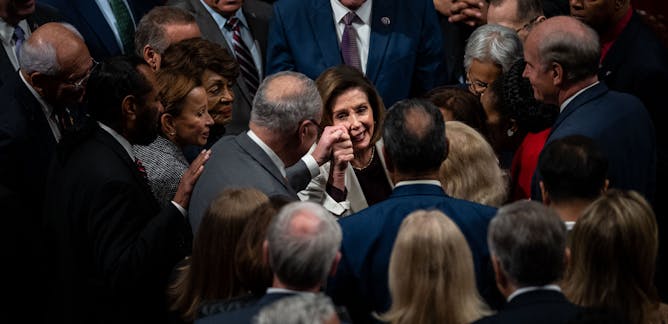
Gerald Warburg, University of Virginia
House Speaker Nancy Pelosi has announced she will step aside from senior leadership. It could lead to generational change in the Democratic Party.
|
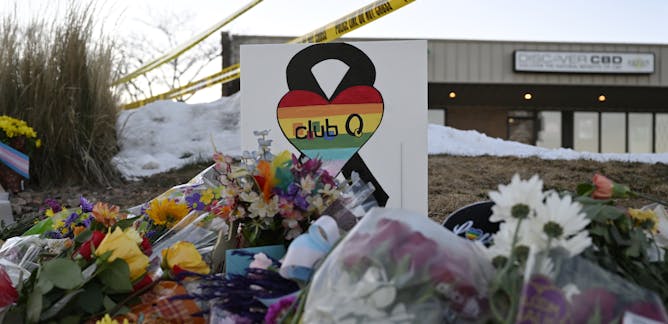
Alex McCourt, Johns Hopkins University
Colorado is one of 19 states that have laws in place to prevent individuals believed to pose a threat from obtaining guns. But a preventive order needs to be petitioned before it can be issued.
| |
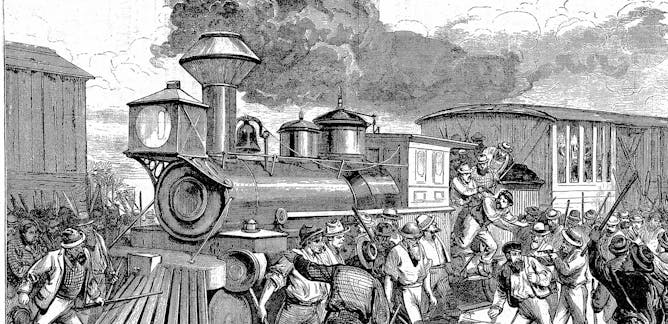
Erik Loomis, University of Rhode Island
Some rail unions are resisting government pressure to accept a new employment contract. Stoppages could derail the economy, but history suggests the authorities will keep the trains running.
|
|
|
|
|
-
A.D. Carson, University of Virginia
The death of popular rapper Takeoff underscores a uniquely American problem – gun violence.
-
Rachel Paine Caufield, Drake University
Nancy Pelosi is out as House Speaker as of January 2023. Republican Kevin McCarthy will likely get the position in the new session of Congress. Here’s what goes with the job.
-
Tim Lindberg, University of Minnesota
The U.S. Senate voted to advance a bill that protect same-sex marriage by a wide margin– thanks to support from 12 Republicans. Same-sex marriage isn’t the partisan issue it once was.
|
|